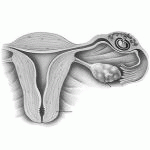Gynaecology
|
24 july 2015 13:48:58 |
| The relationship of women’s status and empowerment with skilled birth attendant use in Senegal and Tanzania (BMC Pregnancy and Childbirth) |
|
Tweet Background:
Maternal mortality remains unacceptably high in sub-Saharan Africa with 179,000 deaths occurring each year, accounting for 2-thirds of maternal deaths worldwide. Progress in reducing maternal deaths and increasing Skilled Birth Attendant (SBA) use at childbirth has stagnated in Africa. Although several studies demonstrate the important influences of women’s status and empowerment on SBA use, this evidence is limited, particularly in Africa. Furthermore, few studies empirically test the operationalization of women’s empowerment and incorporate multidimensional measures to represent the potentially disparate influence of women’s status and empowerment on SBA use across settings.
Methods:
This study examined the relationship of women’s status and empowerment with SBA use in two African countries – Senegal and Tanzania – using the 2010 Demographic and Health Surveys (weighted births n = 10,688 in SN; 6748 in TZ). Factor analysis was first conducted to identify the structure and multiple dimensions of empowerment. Then, a multivariate regression analysis was conducted to examine associations between these empowerment dimensions and SBA use.
Results:
Overall, women’s status and empowerment were positively related to SBA use. Some sociodemographic characteristics showed similar effects across countries (e.g., age, wealth, residence, marital relationship, parity); however, women’s status and empowerment influence SBA use differently by setting. Namely, women’s education directly and positively influenced SBA use in Tanzania, but not in Senegal. Further, each of the dimensions of empowerment influenced SBA use in disparate ways. In Tanzania women’s higher household decision-making power and employment were related to SBA use, while in Senegal more progressive perceptions of gender norms and older age at first marriage were related to SBA use.
Conclusions:
This study provides evidence of the disparate influences of women’s status and empowerment on SBA use across settings. Results indicate that efforts to increase SBA use and to reduce maternal mortality through the improvement of women’s status and empowerment should focus both on improving girls’ education and delaying marriage, as well as transforming gender norms and decision-making power. However, given the multi-dimensional and contextual nature of women’s status and empowerment, it is critical to identify key drivers to increase SBA use in a given setting for contextually tailored policy and programming. |
| 143 viewsCategory: Gynaecology |
 What is the impact of interventions that prevent fetal mortality on the increase of preterm live births in the State of Sao Paulo, Brazil? (BMC Pregnancy and Childbirth) What is the impact of interventions that prevent fetal mortality on the increase of preterm live births in the State of Sao Paulo, Brazil? (BMC Pregnancy and Childbirth)Case report of nipple shield trauma associated with breastfeeding an infant with high intra-oral vacuum (BMC Pregnancy and Childbirth) 
|
| blog comments powered by Disqus |
MyJournals.org
The latest issues of all your favorite science journals on one page
The latest issues of all your favorite science journals on one page



